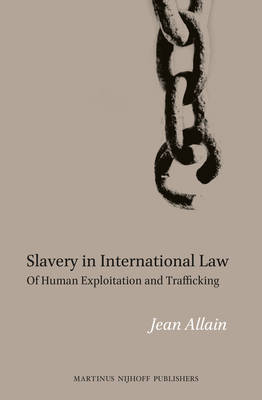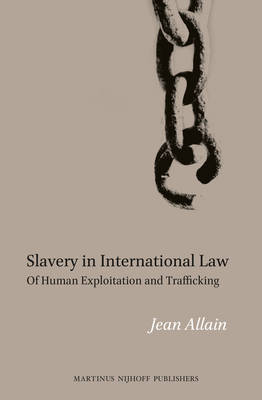
- Afhalen na 1 uur in een winkel met voorraad
- Gratis thuislevering in België vanaf € 30
- Ruim aanbod met 7 miljoen producten
- Afhalen na 1 uur in een winkel met voorraad
- Gratis thuislevering in België vanaf € 30
- Ruim aanbod met 7 miljoen producten
Zoeken
€ 358,95
+ 717 punten
Omschrijving
With the advent, in the twenty-first century, of the trafficking conventions and the criminalisation of enslavement before the International Criminal Court, the need to establish the black-letter law dealing with human exploitation has become acute.
Slavery in International Law sets out the applicable law of human exploitation in the various sub-areas of international law, including general international law, human rights law, humanitarian law, labour law and the law of the sea; so as to create an overall understanding of what constitutes, in law, slavery and lesser types of human exploitation including: forced labour and servitudes such as debt bondage or servile marriage, as set out in the established definition of 'trafficking in persons'.
Slavery in International Law sets out the applicable law of human exploitation in the various sub-areas of international law, including general international law, human rights law, humanitarian law, labour law and the law of the sea; so as to create an overall understanding of what constitutes, in law, slavery and lesser types of human exploitation including: forced labour and servitudes such as debt bondage or servile marriage, as set out in the established definition of 'trafficking in persons'.
Specificaties
Betrokkenen
- Auteur(s):
- Uitgeverij:
Inhoud
- Aantal bladzijden:
- 444
- Taal:
- Engels
Eigenschappen
- Productcode (EAN):
- 9789004186958
- Verschijningsdatum:
- 12/10/2012
- Uitvoering:
- Hardcover
- Formaat:
- Genaaid
- Afmetingen:
- 170 mm x 244 mm
- Gewicht:
- 839 g

Alleen bij Standaard Boekhandel
+ 717 punten op je klantenkaart van Standaard Boekhandel
Beoordelingen
We publiceren alleen reviews die voldoen aan de voorwaarden voor reviews. Bekijk onze voorwaarden voor reviews.








